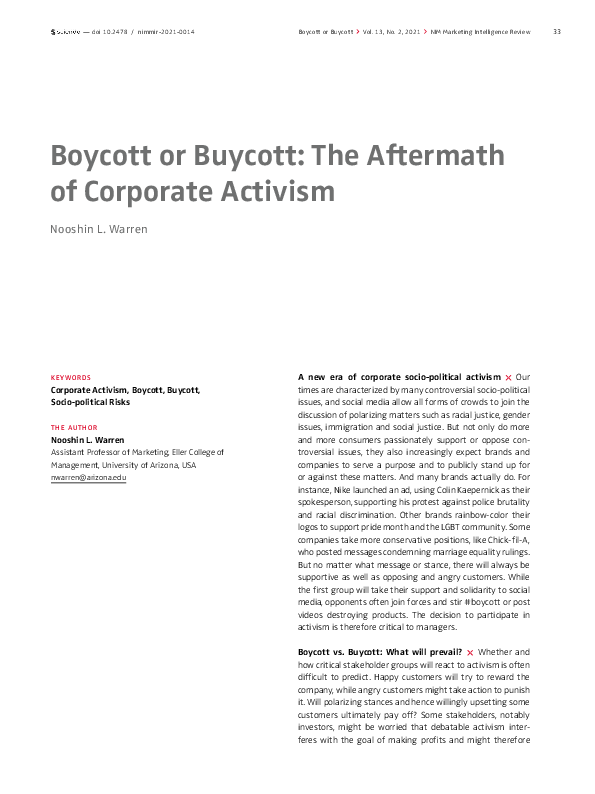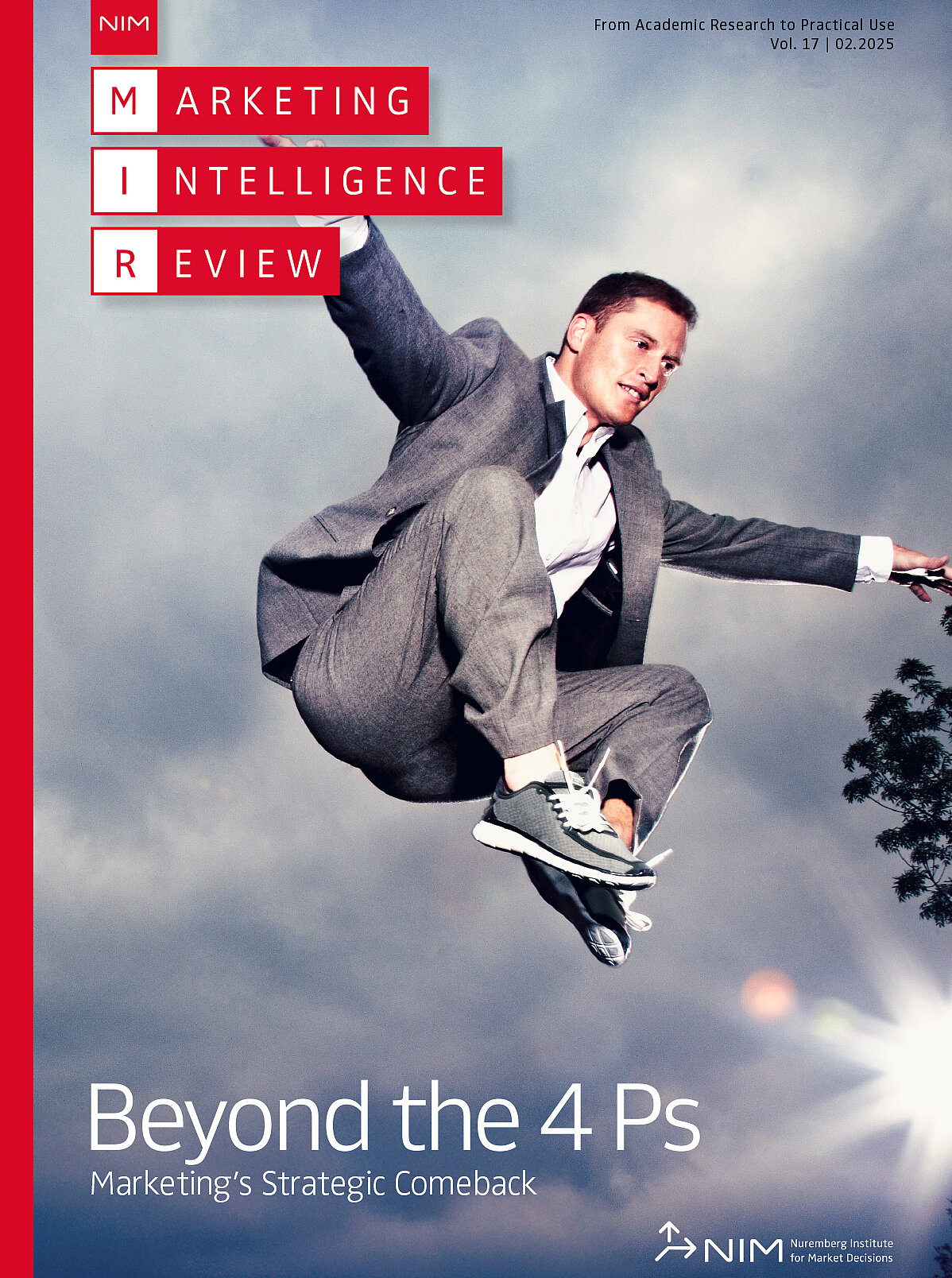Boycott or Buycott: The Aftermath of Corporate Activism
Keywords: Corporate Activism, Boycott, Buycott, Socio-political Risks
Abstract
Some stakeholders, notably investors, might be worried that debatable activism interferes with the goal of making profits. Therefore, they might react negatively to corporate activism. On average, there was a half percent dip in stock prices as companies engaged in activism. However, if the activism was aligned with a company´s stakeholders’ values, stock prices increased. The effect for customer and legislators was stronger than for employees. Misalignment with all three groups accounted for the highest loss. Brand activism aligned with consumers political ideologies, further increased sales, and the positive effects were persistent, over time.
To be successful, companies should carefully select their engagements to avoid being punished. When deciding whether to engage in controversial activism, they should have a closer look at key stakeholders, such as customers, regulators, and employees.










